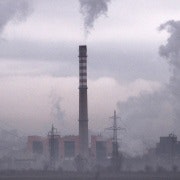Carbon price down, international ambition up?
Kevin Rudd’s decision to move to trading a year early, in a way, makes it easier for Australia – one of the world’s worst polluters per capita – to achieve significant emissions abatement at a lower cost. It would also largely determine how much Australia contributes to ongoing international efforts to reduce emissions.
The changes won’t affect the setting of the emission limit under the ETS. An independent process is already underway into Australia’s national targets through the Climate Change Authority.
By moving early to place a limit on emissions, an opportunity arises to align Australia’s domestic policies with the stated national climate interest of avoiding a 2oC increase global temperature ahead of important international events, like the UN Secretary General world leaders’ summit on climate ambition next year and the development of a new global agreement in 2015.
While they disagree on which mechanisms to employ, both sides of the political debate in Australia agree that the country should reduce its emissions by between 5% and 25% by 2020. Higher targets are conditional on certain levels of international action.
The more ‘facilitative’ approach that has emerged since Copenhagen has seen the majority of major emitters making international commitments to constrain emissions, and has given rise to international discussions about a ‘spectrum of commitments’ and how to put in place a peer review process to underscore this approach.
A 2015 agreement would very likely involve countries advancing self-selected targets and contributions, with these commitments to be reviewed by the international community. After this review, targets would be inscribed in a new agreement and subject to transparency provisions. The, latter provision is likely to be very important to both the US and China as they seek to overcome perceived competitiveness concerns in domestic constituencies.
In this scenario, the credibility and ambition of Australia’s domestic policy settings will become more important under the new 2015 agreement. A policy that can meet stated international targets is central to building the credibility of the emerging architecture, building global ambition, and avoiding negative responses from other major economies.
This has a number of implications for Australia’s emissions goals, the cap-setting process in 2014, and the role we play internationally.
It illustrates that the self-selection of credible goals is paramount to effective global action in the short-term. At present, solid self-selected commitments consistent with 2oC are the only way Australia’s national interest will be achieved.
In addition to the ambition and credibility of domestic policy settings, Australia’s action in setting a strong cap influences other countries in building an agreement that covers commitments from all major economies.
Many will remember the damaging role Australia played in its initial refusal to ratify the Kyoto Protocol. More recently, ratification of the Kyoto Protocol, the subsequent commitment to a second commitment period target, and implementation of carbon laws have been strongly welcomed by the international community.
This has allowed Australia to play a more proactive and positive role in brokering agreements between different negotiating blocs. For example, Australia’s credibility in the Cartagena Dialogue has been strongly influenced by our domestic policy settings and participation in the Kyoto Protocol. The Cartagena Dialogue played a pivotal role in securing the Cancun Agreements in 2010.
Australia’s real economy looks very similar to Canada’s except Australia has ‘skin in the game’ – Australia’s participation in the legally-binding regime and enacted domestic policies means we are more credible and have more leverage than Canada. This diplomatic capacity and political leverage provides a progressive voice, in contrast with some of our counterparts.
Extending this further, Australia has additional influence internationally than many other comparable countries. Our resource extractive industries and the challenges that Australia faces in its decarbonisation efforts lend it more credibility with many middle income economies. This contrasts, for example, with Europe, which has a relatively limited extractive industry.
Middle income economies are a critical target audience to influence in the international negotiations, so Australia’s decarbonisation efforts can make an impact on these economies and how they envisage the process and politics of decarbonisation domestically.
In the end, the climate is unlikely to be worse off under the changes. It could, in fact, be better off, if whoever is in government next year ensures that Australia’s regulated limit on emissions meets the nation’s climate interest and constitutes a serious effort towards avoiding 2oC.
Erwin Jackson is deputy CEO of The Climate Institute
This article was originally published in Environmental Finance, republished with permission.













